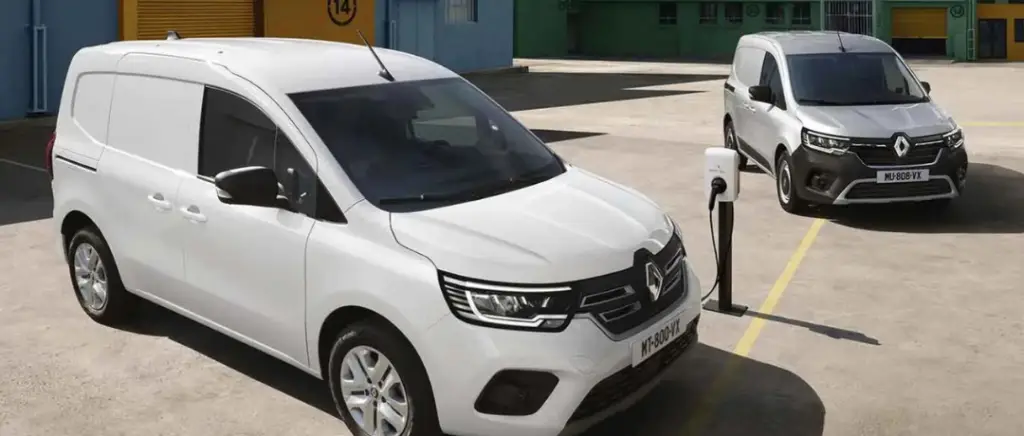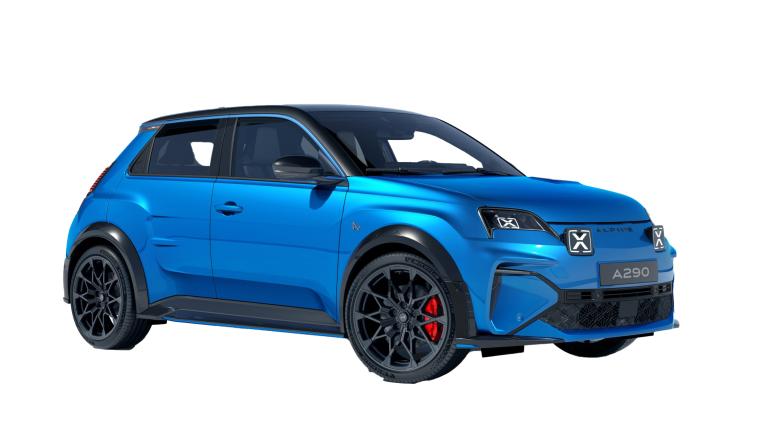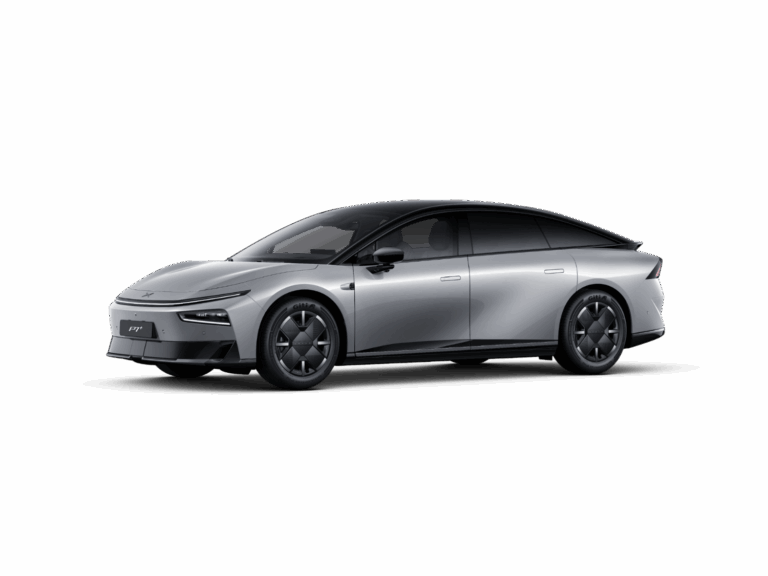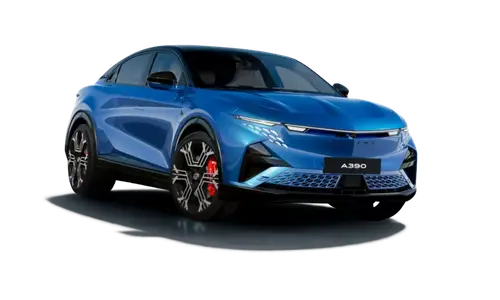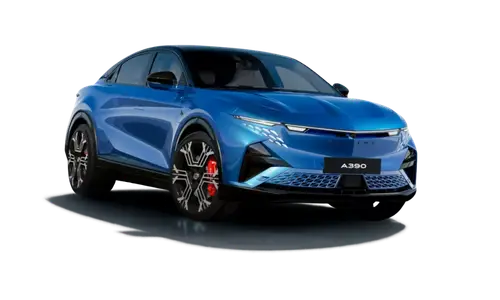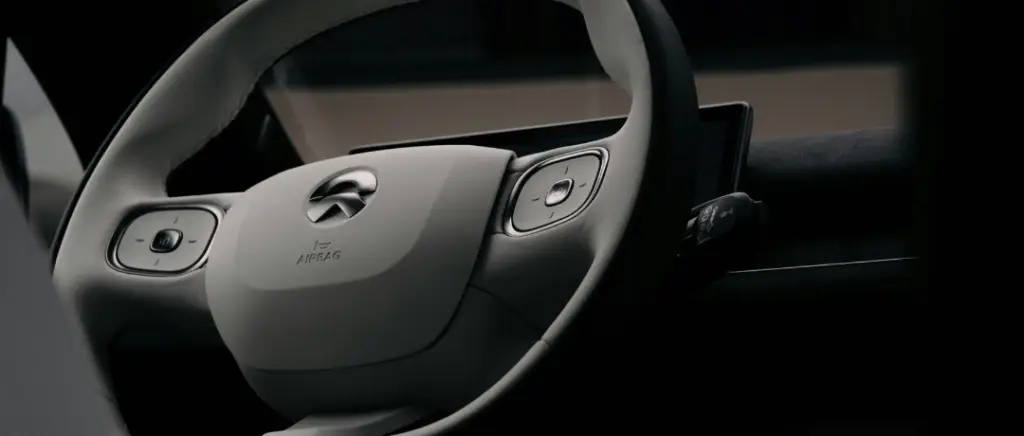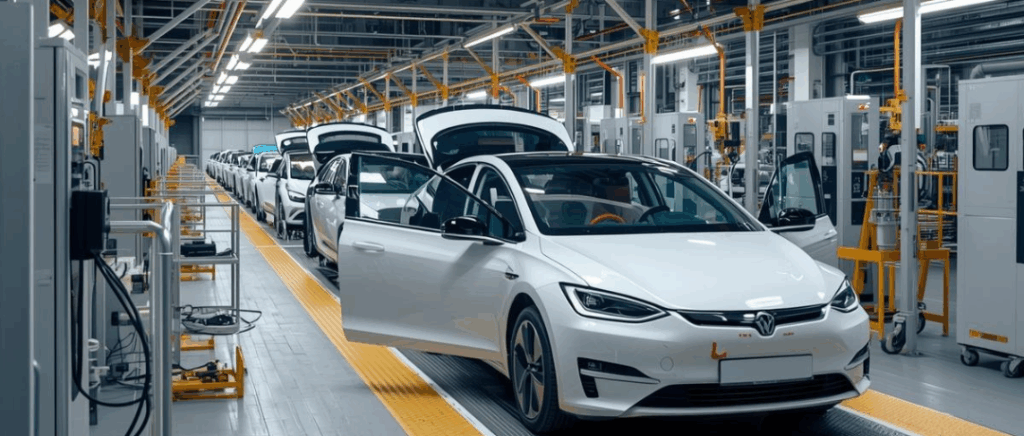How can an electric van help tradespeople significantly reduce their CO2 emissions?
Adopting an electric commercial vehicle (ECV) is a real opportunity for tradespeople who want to reduce their energy consumption. carbon footprint while optimising their business. These vehicles, designed to meet the specific needs of professionals, offer practical solutions to today's environmental and economic challenges. Here's how an electric van helps to significantly reduce CO2 emissions:
- Zero direct emissions during journeys: Unlike combustion-powered vehicles, electric vans emit no greenhouse gases (GHGs) when in operation. This means that tradespeople can drastically reduce the emissions associated with their daily journeys, whether for deliveries or on-site work.
- Reducing indirect emissions by using renewable energy sources: By recharging their electric commercial vehicle with electricity from renewable sources (solar, wind, hydro), tradespeople can further reduce the overall environmental impact of their activity.
- Optimising routes and journeys: Modern electric vans are often equipped with intelligent navigation systems that help plan the most efficient routes. This not only reduces energy consumption but also the time spent on the road, thereby reducing the overall carbon footprint.
- Easier access to Low Emission Zones (LEZ): Many European cities now impose strict restrictions on polluting vehicles. Craftsmen using an electric commercial vehicle can continue to have unrestricted access to these zones, avoiding possible fines while helping to reduce atmospheric pollutants.
- A lever for an eco-responsible image: By opting for an electric van, tradespeople are demonstrating their commitment to a sustainable approach. This can appeal to customers who are sensitive to environmental issues and strengthen their market position.
In short, integrating an electric commercial vehicle into a small business fleet is more than just a technological transition. It's part of an overall strategy to combine economic performance with environmental responsibility. For tradespeople, it's a concrete response to the challenges of modern B2B, where reducing CO2 emissions is becoming as much an imperative as a competitive advantage.
Simplified access to Low Emission Zones thanks to electric vans
For craftsmen, the electric van is much more than just an ecological choice: it's a strategic asset for navigating efficiently in a constantly changing urban environment. Restricted access to Low Emission Zones (LEZ) is becoming an increasing reality, and owning a electric commercial vehicle offers a practical solution for maintaining and developing your business without constraints.
- Ensuring business continuity: Don't be limited by traffic restrictions. An electric van gives you permanent access to the EPZs, so you can honour your contracts and serve your customers without interruption.
- Improving brand image: Adopt the image of a responsible company that respects the environment. This approach can be a differentiating selling point with your customers, who are concerned about sustainable development.
- Reduce long-term costs: Although the initial investment may be higher, electric vans benefit from tax exemptions and government bonuses. What's more, maintenance and fuel costs are considerably reduced, improving your return on investment (ROI).
- Anticipating future regulations: The number of EPZs is set to increase and they are likely to get tougher. Investing in an electric commercial vehicle today means anticipating these changes and securing your business for years to come.
By opting for an electric commercial vehicle, you're making a wise choice that will help you stand out from the competition, strengthen your brand image and contribute to a cleaner future. Don't wait any longer, make the switch to electric vehicles and reap the many benefits for your business.
Less noise, more peace: the benefits of a silent electric van
For craftsmen, the adoption of a electric commercial vehicle is much more than just an ecological choice. It's a real opportunity to improve their operational efficiency and strengthen their brand image. One of the most significant and often underestimated benefits is noise reduction. A electric van offers a more pleasant working environment, both for the craftsman and his customers.
- Improved quality of life : Less noise pollution for the craftsman, reducing stress and fatigue, especially on long working days in an urban environment.
- Improved customer relations : A calmer environment makes it easier to communicate with customers, improving the customer experience and boosting satisfaction.
- Positive brand image : A craftsman who opts for a electric commercial vehicle demonstrates its commitment to the environment and the well-being of its customers, which can be a competitive advantage.
- Easier access to urban areas : More and more towns are restricting access to polluting vehicles. A electric van allows you to drive without restrictions, even in low-emission zones (ZFE).
- Increased productivity : A less stressful and quieter working environment can help to improve concentration and, consequently, the craftsman's productivity.
Ultimately, the transition to a electric commercial vehicle is a wise investment for craftspeople who want to improve their daily lives, strengthen their brand image and maximise their return on investment (ROI).
How can an electric van reduce fatigue for tradespeople on the move?
For tradespeople, travel is an important part of their daily lives, often synonymous with stress, noise pollution and fatigue. L'electric van offers a concrete solution for improving working conditions and the well-being of professionals.
- Reducing noise pollution : A electric commercial vehicle is much quieter than a thermal vehicle. This reduction in noise pollution reduces the stress and fatigue associated with journeys. Craftsmen are less exposed to engine noise, vibrations and horns, which contributes to better concentration and a feeling of well-being.
- Smoother, more pleasant ride: Electric vehicles are equipped with an automatic transmission and offer a smoother ride. The absence of gears to change and the instantaneous engine torque make driving more pleasant, especially in urban areas where stopping and restarting is frequent.
- Less vibration : The electric vans generate less vibration than combustion engine vehicles. This reduction in vibrations reduces physical fatigue and muscular pain, which is particularly important for craftsmen who spend many hours on the road.
- A healthier working environment: By opting for a electric commercial vehicleIn their workplaces, tradespeople are helping to improve air quality and reduce their exposure to harmful exhaust fumes. A healthier working environment has a positive impact on the health and well-being of tradespeople.
In conclusionelectric van represents a real opportunity to improve working conditions for craftsmen and reduce their daily fatigue. In addition to the environmental and economic benefits, driving comfort and the reduction in noise and vibration contribute to a better quality of life for professionals.
An eco-responsible brand image that appeals to your customers
In a business environment that is increasingly concerned about environmental impact, the adoption of a electric commercial vehicle represents much more than a simple logistical choice for craftsmen It's a real opportunity to strengthen your brand image and attract customers looking for eco-responsible partners.
- Competitive differentiation : Highlight your commitment to the planet and stand out from the competition. A electric van is a strong signal of your environmental awareness, a differentiating advantage in a market where customers are increasingly sensitive to these issues.
- Enhanced brand image Your company will project a modern, innovative and responsible image. This positive perception can translate into increased customer confidence and, ultimately, sales.
- Meeting tender requirements More and more public and private sector contracts are including environmental criteria in their invitations to tender. Being equipped with a electric vehicle can become a decisive advantage in winning contracts.
- Attracting talent : Professionals, especially the younger generation, are increasingly attentive to the values of the companies they work for. A fleet of electric vehicles can make you more attractive to talented future employees.
Challenges and solutions
- Initial cost : Investment in a electric commercial vehicle may seem high at first. However, it's important to consider the total cost of ownership (TCO) over the long term, including savings on fuel, maintenance and tax benefits (eco-bonus, VAT exemption, etc.).
- Autonomy and recharging : The autonomy of electric vehicles can be an obstacle for some craftsmen ( landscapers, plumbers, locksmiths, electricians, roofers, bricklayersetc.) making long journeys. Solutions exist: route planning, public charging points, installation of charging points at home or within the company.
- Adapting the organisation The integration of a electric vehicle may require changes to the logistics organisation (recharging times, route management, etc.). Careful planning and team training are essential to optimise the use of these vehicles.
By adopting a electric commercial vehicleWhen you buy a car, you're doing much more than acquiring a means of transport: you're investing in a positive brand image, in line with your customers' expectations and today's environmental challenges. It's a strategic choice that could prove highly profitable for your company in the long term.
Reduced maintenance costs: the mechanical simplicity of electric motors
One of the major advantages of electric vans for tradespeople, and by no means the least, is the significant reduction in maintenance costs. Compared with their combustion-powered counterparts, electric vehicles have simpler mechanical systems: fewer moving parts, no exhaust system, no oil changes, etc.
For professionals such as landscapers or plumbers, who are heavily dependent on their commercial vehicles, this simplicity translates into :
- Fewer visits to the workshop: no more regular, complex overhauls of combustion engines.
- Lower maintenance bills: interventions are less frequent and less costly.
- Reduced downtime: a vehicle on the road means a craftsman working and earning money.
Clearly, an electric van means simplified maintenance and precious time saved, synonymous with greater profitability for your business.
And let's not forget that regenerative braking of electric vehicles helps to preserve brake pads, extending their life and further reducing maintenance costs.
In conclusion, by adopting an electric van, tradespeople can make substantial savings over the long term, a powerful argument for optimising the ROI of their vehicle fleet.
A rapidly expanding network of recharging points
The development of the recharging network brings a number of tangible benefits for tradespeople:
- Expanding the network: The government is aiming to install 100,000 public charging points by 2025, facilitating access to charging throughout the country.
- Fast charging on roads: 99% of service areas on motorways under concession are now equipped with very fast charging stations (>150 kW), enabling charging in less than 20 minutes. This optimises journey times on long-distance journeys.
- Obligations for non-residential buildings: From 1 January 2025, car parks with more than 20 spaces in buildings open to the public will have to be equipped with charging points in at least 5% of their spaces. This measure will considerably increase the opportunities for recharging on customer premises.
- Charging solutions for professionals: Specific systems for electric commercial vehicles are being developed, offering charging points adapted to the size and use of these vehicles.
For small businesses, this expansion of the recharging network means a higher return on investment (ROI). Reduced downtime for recharging and increased productivity thanks to better route planning help to optimise operating costs.
What's more, guaranteed access to low-emission zones (LEZs) in major cities ensures business continuity, a significant competitive advantage.
A range of electric commercial vehicles to suit every need
The rapid development of the electric commercial vehicle (ECV) market means that tradesmen now have a diverse range of vehicles to meet their specific business requirements. This adaptation of the sector to the needs of B2B is reflected in a number of tangible benefits:
- Variety of formats: from small urban vans to large commercial vehicles, every craftsman can find a vehicle to suit his activity and logistical constraints.
- Optimised range: The latest models offer ranges from 200 to over 400 km, covering most daily needs without recharging.
- Improved load capacities: The latest VUEs offer load volumes and payloads comparable to their combustion-powered counterparts, without compromising on performance.
- Increased customisation: Manufacturers offer tailor-made layout solutions, optimising the mobile workspace to suit each business.
- On-board technologies: Geolocation, fleet management and route planning systems help to improve productivity and reduce operating costs.
This diversification of the range means that small businesses can make the transition to electric vehicles without sacrificing their operational needs. The ROI is improved thanks to a better match between the vehicle and professional use, while benefiting from the economic and ecological advantages of electric vehicles.
Diversify your opportunities: how can electricity boost your business?
Adding an electric van to your fleet is much more than just changing vehicles. It's a real opportunity for your business to grow. Here's how:
- Expand your customer base: More and more customers, particularly in urban and suburban areas, are sensitive to environmental issues. Showcasing your commitment to the environment with an electric van can open the door to a rapidly expanding market. You'll be meeting a specific demand, setting yourself apart from the competition and attracting an environmentally conscious clientele who are prepared to favour companies that take a responsible approach.
- Access low-emission zones (LEZs) : More and more of these zones are restricting access to the most polluting vehicles. With an electric van, you ensure that you can continue to work in these areas, or even expand your business there. You anticipate future restrictions and position yourself as a player мобиль and respectful of environmental standards.
- Develop new services: The ability of electric vans to recharge during breaks or at night opens the way to new services, such as off-peak deliveries or emergency interventions. You optimise the use of your vehicle, offer differentiating services and build customer loyalty.
- Improve your brand image: Adopting an electric van sends out a strong signal to your customers, partners and prospects. You show your commitment to a sustainable future, strengthen your brand image and attract new talent. You convey a positive, modern and responsible image, which can be a major asset in a competitive market.
In short, the electric commercial vehicle is not just a work tool, it's a real lever for growth in your business. It allows you to diversify your opportunities, adapt to changes in the market and strengthen your position with your customers.
Manage your vehicles with ease thanks to connected technologies
One of the often underestimated advantages of electric vans is their advanced integration with connected technologies. In fact, most recent models are equipped with sophisticated fleet management systems that can really optimise your operations and help you make the most of your fleet. improve your ROI.
Just imagine:
- Real-time tracking of your vehicles' positions No more incessant calls to find out where your team is. You always know where your vehicles are, which makes it easier to plan interventions and optimise journeys.
- Analysis of driving data Collect valuable information about your drivers' behaviour (speed, braking, energy consumption). With this data, you can identify areas for improvement, reduce fuel costs and vehicle wear and tear, and even train your teams to drive more ecologically.
- Predictive maintenance With remote diagnostics, you can anticipate breakdowns and optimise workshop visits. This saves you a considerable amount of time and money, avoiding unscheduled downtime and the need to call in to the workshop. increases the productivity of your teams.
- Recharge management schedule your vehicle recharging to coincide with off-peak times, so you can minimise your energy costs. Some systems even allow you to check the charge level of each vehicle remotely.
These functions, which can be accessed via mobile applications or dedicated web platforms, simplify the management of your fleet and provide you with a single point of contact for all your fleet management needs. increased visibility of your operations. By optimising the use of your vehicles and reducing operating costs, you are contributing to improve your company's profitability.
Summary table
| Criteria | Advantages of electric vans |
|---|---|
| Reducing CO2 emissions | Zero direct emissions, recharging possible using renewable energy, optimised journeys |
| Access to Low Emission Zones (LEZ) | Unrestricted traffic flow, business continuity, anticipation of future regulations |
| Improved driving comfort | Less noise, less vibration, smooth, automatic driving |
| Brand image and appeal | Eco-responsible commitment, competitive differentiation, attracting talent and invitations to tender |
| Savings and profitability | Reduced maintenance costs, tax exemptions, lower fuel costs |
| Business development | New, ecologically-sensitive markets, optimised routes, greater flexibility |
| Charging infrastructure growing | Mass deployment of charging points, fast charging on motorways, dedicated solutions for professionals |
| Connected technologies | Real-time tracking, optimised management of journeys and recharging, predictive maintenance |
Conclusion
In conclusion, the adoption of an electric commercial vehicle represents a significant step forward for tradespeople. As well as reducing their carbon footprint, these vehicles offer a host of tangible benefits: access to EPZs, reduced noise pollution and fatigue, an eco-responsible brand image, lower maintenance costs, and optimised fleet management thanks to connected technologies.
The range of electric commercial vehicles is growing and adapting to the specific needs of each business, facilitating the transition to more sustainable and cost-effective mobility. Investing in an electric light commercial vehicle means investing in the future of your business and contributing to a cleaner world.
Do you want to go electric? Beev can help you make the transition to greener, more sustainable mobility. Whether you're an individual looking for a installation of home charging points or a professional requiring installation of recharging points for professionalswe are simplifying theinstallation of a recharging pointby offering you tailor-made solutions to meet your specific needs. So go ahead, install a charging point and set yourself apart from the competition.
Make your energy transition now, with a range of new 100 % electric vehicles available for leasing from Beev!
